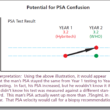Rethinking daily aspirin…
Dr. Jeffrey S. Berger, MD, MS writes for JAMA (April 26, 2022) that it may be time to rethink the approach that had been accepted over the past decades of relying on aspirin in the primary
approach that had been accepted over the past decades of relying on aspirin in the primary
prevention of cardiovascular disease (CVD) outcomes and prevention of colorectal cancer.
There is no question that aspirin is the cornerstone of therapy for the secondary prevention of
cardiovascular disease. Nevertheless, he questions whether the benefit for primary prevention
is worth the risk of bleeding. Primary prevention means trying to prevent the first stroke or
heart attack. The meta-analysis suggests only a modest benefit in the prevention of the first
heart attack or stroke at the cost of excess major bleeding. The United States Prevention
Services Task Force (USPSTF) recommends that the decision to initiate low-dose aspirin for the
primary prevention should be an individual choice in adults 40-59 years of age with a 10% or
greater risk for 10-year CVD. The UPSTF recommends against initiating prophylactic aspirin use
in adults aged 60 or over. Previously the regimen of low-dose aspirin to prevent the incidence
and mortality from colorectal cancer was accepted, but now upon review of data, Dr. Berger
states that the evidence is inadequate to show that it significantly reduces the incidence and
mortality from this disease. The author stresses the clinical benefit in these diseases is marginal
and that must be measured against the well-known risk of major bleeding. The full article can
be found at JAMA Network Open,2022;5(4):e2210144.doi:10.1001/jamanetworkopen.2022.10144

















